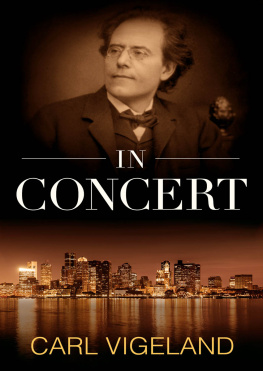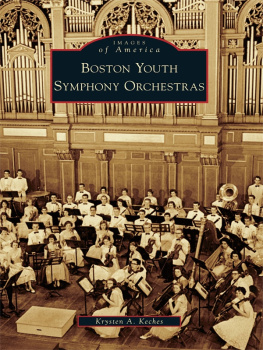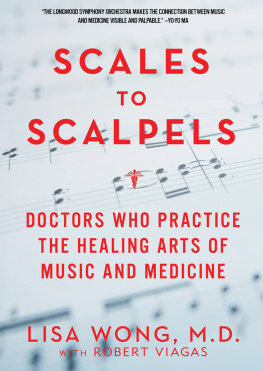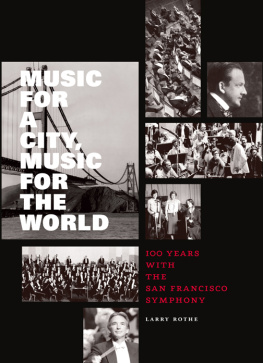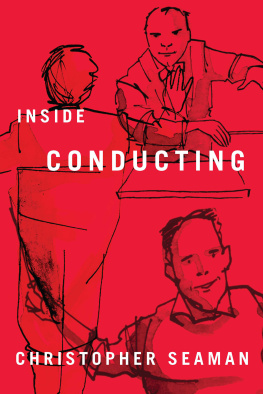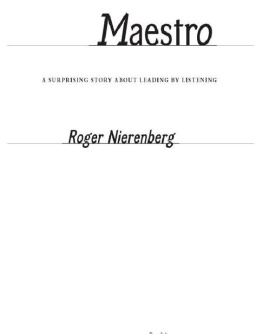Carl Vigeland - In Concert
Here you can read online Carl Vigeland - In Concert full text of the book (entire story) in english for free. Download pdf and epub, get meaning, cover and reviews about this ebook. year: 2016, publisher: Open Road Distribution, genre: Detective and thriller. Description of the work, (preface) as well as reviews are available. Best literature library LitArk.com created for fans of good reading and offers a wide selection of genres:
Romance novel
Science fiction
Adventure
Detective
Science
History
Home and family
Prose
Art
Politics
Computer
Non-fiction
Religion
Business
Children
Humor
Choose a favorite category and find really read worthwhile books. Enjoy immersion in the world of imagination, feel the emotions of the characters or learn something new for yourself, make an fascinating discovery.
- Book:In Concert
- Author:
- Publisher:Open Road Distribution
- Genre:
- Year:2016
- Rating:4 / 5
- Favourites:Add to favourites
- Your mark:
- 80
- 1
- 2
- 3
- 4
- 5
In Concert: summary, description and annotation
We offer to read an annotation, description, summary or preface (depends on what the author of the book "In Concert" wrote himself). If you haven't found the necessary information about the book — write in the comments, we will try to find it.
In Concert — read online for free the complete book (whole text) full work
Below is the text of the book, divided by pages. System saving the place of the last page read, allows you to conveniently read the book "In Concert" online for free, without having to search again every time where you left off. Put a bookmark, and you can go to the page where you finished reading at any time.
Font size:
Interval:
Bookmark:

In Concert
Onstage and Offstage with the Boston Symphony Orchestra
Carl Vigeland
Also by Carl Vigeland
Great Good Fortune: How Harvard Makes Its Money
Stalking the Shark: Pressure and Passion on the Pro Golf Tour
Jazz in the Bittersweet Blues of Life (with Wynton Marsalis)
Letters to a Young Golfer
The Mostly Mozart Guide to Mozart
The Breathless Present: A Memoir in Four Movements
Jonathan Sternberg
The Great Romance: The Sun Returns, Time Never
A Symphony for Shelbie
Dear President Trump: An Open Letter on Greatness
French Lessons
October Calf (with Archibald MacLeish)
Ricochet
Walking Trane
Foreword to This Edition
In the years since this book was first published, many of the players have of course changed. But the underlying thought, the thrust of the storythat real people, with real problems and conflicts, not only perform music but also make it liveis just as true now as it was on the summer day in 1986 when I sat in at a Boston Symphony Orchestra rehearsal of Tchaikovskys Sixth Symphony at Tanglewood, led by the late Leonard Bernstein.
I had driven over to Tanglewood from my western Massachusetts home almost by chance. That morning, the funding for a collaborative project on which Id been working fell through, and I suddenly found myself free. Having recently written a short magazine piece about the audition and appointment of the BSOs new concertmaster, Malcolm Lowe, Id made some contacts I could call. More than half a year had passed since Id heard a BSO performance in Boston of Bachs St. John Passion, after which my wife and I had spent the drive home talking about the chemistry of a performance that had included a last-minute substitute for the conductor. What made it work? Why, on other occasions, had a certain something seemed missing? Now, at Tanglewood, I was going to begin positing responses to such questions.
In fact, without quite realizing it, Id been asking myself some form of the same thing since I was a child, growing up in Buffalo, New York, the son of musicians and the godson of a renowned conductor, Josef Krips. My formal musical education had begun with piano lessons when I was five, to which I added trumpet as a fourth grader. I stopped piano when I entered high school, but I was still intent on studying the trumpet when I arrived in Boston to begin my freshman year at Harvard, where the lack of instrumental teachers prompted me to find one at the New England Conservatory of Music.
I vividly recall the Saturday morning in September when I took the T from Cambridge and, with a change at Park Street, found myself at the conservatory building, one block from Symphony Hall. Walking the first floor corridor, I was stunned to hear the sounds coming from studio upon studio, the aural manifestation of students who, I instantly grasped, had practiced much harder than I. Though I stayed for my lesson, I knew I was never going to be good enough to compete with what I could hear.
Twenty years later, with my first book publishedas it happened, an examination of how my alma mater functioned as a businessI was in Boston again for a rehearsal of Mahlers Second Symphony. It was two months since that July day when Id run over to hear Bernstein rehearse Tchaikovsky, an occasion that had been followed by an impromptu invitation to observe a conducting class hed led for several Tanglewood students. Id introduced myself to him afterwards, meaning but forgetting to mention that my father had been a Tanglewood student in the same summer class of 1940 at which Bernstein and Lukas Foss had starred. Now, in different guise, I was to begin my own study, exploring the questions prompted, really, by a lifetimes love of music, whether as listener or amateur player. The BSO was opening its season with Mahler and my initial goal was to follow the preparations for that occasion from every angle possible.
During a break in the first rehearsal, I went backstage looking for principal trumpet Charles Schlueter, whom I found smoking a Winston in a cramped, mezzanine lounge. Id never met Mr. Schlueter, but I assumed between my own background and the prominence of the trumpet part in Mahlers epic symphony hed be someone Id want to speak with. Might we talk sometime, I asked him, and he told me he taught private students every Saturday at the New England Conservatory. I was welcome to meet him there.
And so it truly began, more than a year of attendance at rehearsals and concerts, conversations with musicians and others, and so many trips to Boston and, the following summer, Tanglewood again that I felt like a commuter. I went on tour with the orchestra to Carnegie Hall in New York. I spent an extraordinary winter morning listening in his condo to Malcolm Lowe as he practiced. I enjoyed dinner at the Schlueters home in Newton and stayed overnight at Charlies cottage on Plum Island. Married violists Ron Wilkison and Patti McCarty opened their South Boston residence to me on many occasions when I was too tired to drive home after a concert. I became a proverbial fly on the wall in Seiji Ozawas dressing room and during an unforgettable afternoon at his Tanglewood house I sat with him on the floor by a low table as we discussed different passages I had marked on my copy of the Mahler score.
After this book was published, first in English and then in Japanese, Seiji was among those who seemed startled that Id organized my story around his contentious relationship with a controversial Charlie Schlueter. That had certainly not been my original intention, but again and again as I immersed myself in the life of the orchestra I felt drawn into this drama because it symbolized the very thing that inspired Mahler: passionate questions that address not only music but life.
Long after both Seiji and Charlie have left the orchestraSeiji, initially, to a prestigious post in Vienna, from which he later resigned to recover from cancer; Charlie to teach, record, and tourthose questions remain, as they always will, as long as such great institutions as the BSO continue. Amidst marketing schemes to attract new audiences within the cultural din of competing agendas, it can be easy to lose sight of what inspired the creation of such an institution in the first place. But, to paraphrase the song, as time goes by, the fundamental things still apply.
C. V., July 2016
for Bonnie
O NE
Long before he leaves home this morning, Charlie Schlueter can feel the knot in his stomach begin to tighten. It happens every time he has to go to work. He gets up early, usually by six oclock, and fixes breakfast, including the first of many cups of black coffee he will drink today. After nervously puttering by himself in the kitchen, putting away the dishes from the dishwasher, he glances at the Boston Globe the newsboy left on the porch of his simple, comfortable house in Newtonville, Massachusetts. Today is September 30, 1986, the first day of the Boston Symphony Orchestras new season, so there are no reviews about him in the newspaper. Thats a relief.
In a few hours, at 10:30 A.M. , Charlie must be onstage in Symphony Hall to begin the rehearsal of Gustav Mahlers Second Symphony, the Resurrection. Charlie is the principal trumpet in the orchestra, a job that means more than the honor of being titular head of his section. He not only plays the most difficult trumpet solosand any solo on the trumpet is difficultbut he also sets a tonal standard for the entire brass section, a standard that influences the way the whole orchestra sounds.
Handling the pressure of his highly vulnerable position is a constant test of his nerves, and though Charlie tries, as he puts it, to stay a day ahead of the struggle, the nature of his profession makes tension inevitable whenever he must rehearse or perform. He says goodbye to his wife, Martha. Their two grown daughters are away at school, and Martha, an accomplished violinist, has started to spend more of her time painting in an upstairs studio at home. Charlie puts his trumpet in the passenger seat of the Toyota Corolla and backs out of the driveway onto Otis Street for the twenty-minute drive to the hall.
Font size:
Interval:
Bookmark:
Similar books «In Concert»
Look at similar books to In Concert. We have selected literature similar in name and meaning in the hope of providing readers with more options to find new, interesting, not yet read works.
Discussion, reviews of the book In Concert and just readers' own opinions. Leave your comments, write what you think about the work, its meaning or the main characters. Specify what exactly you liked and what you didn't like, and why you think so.

